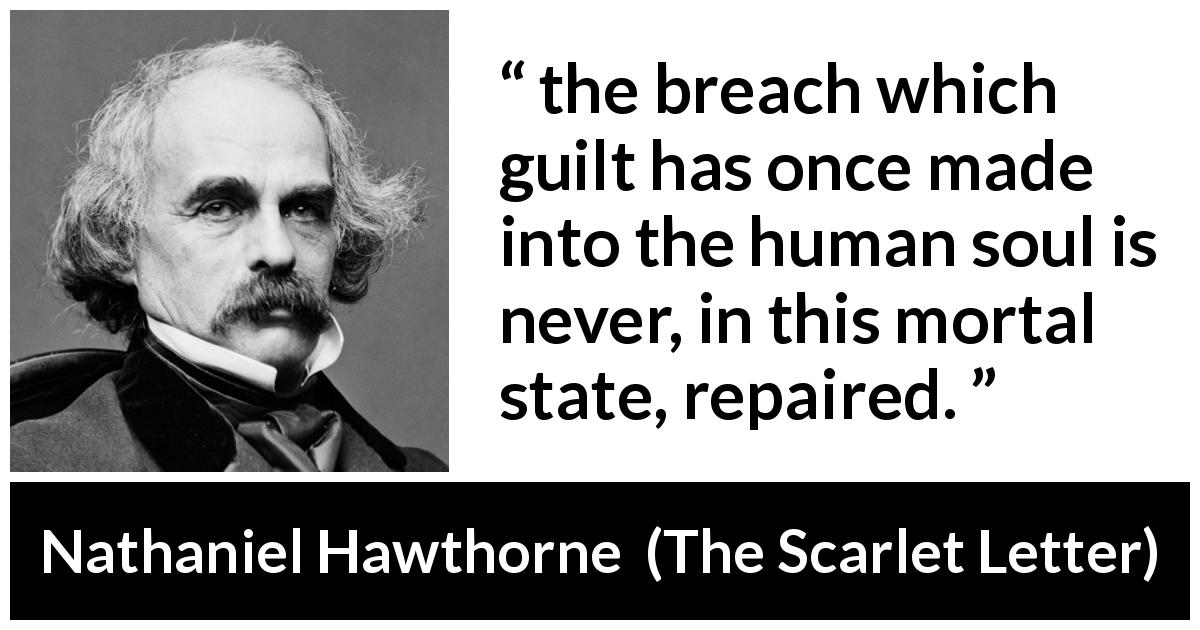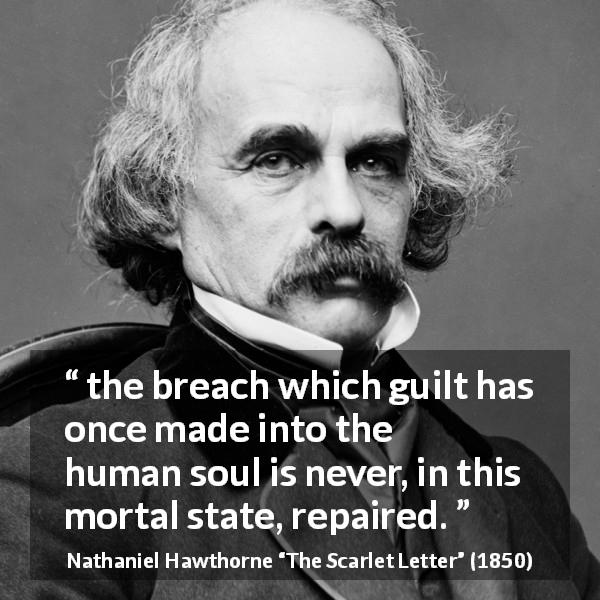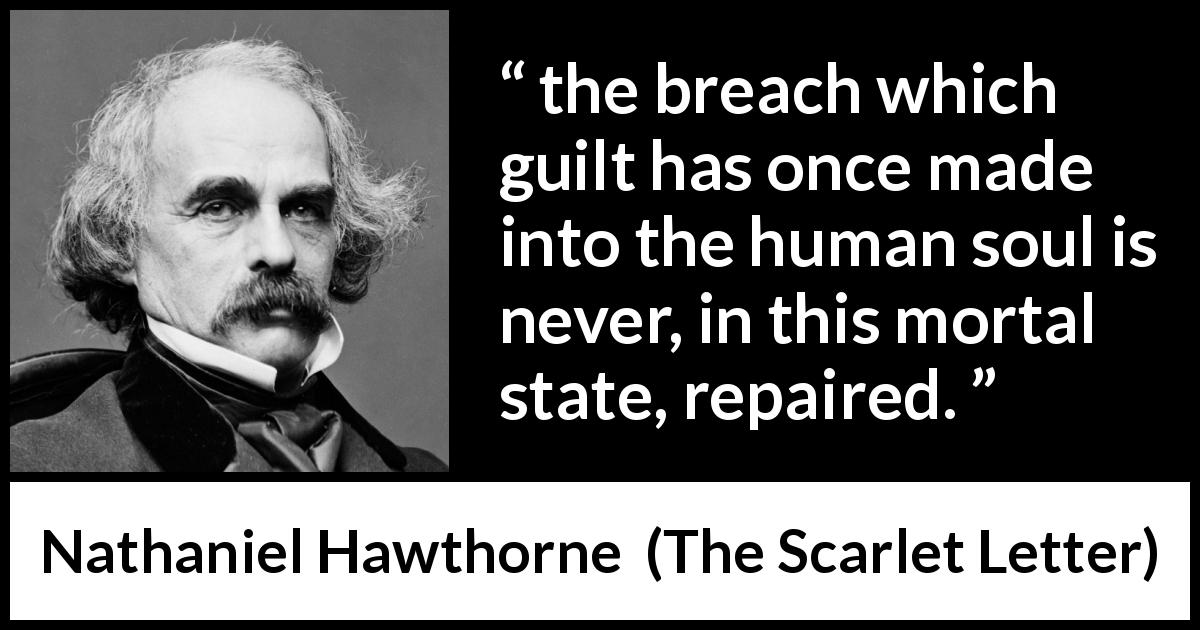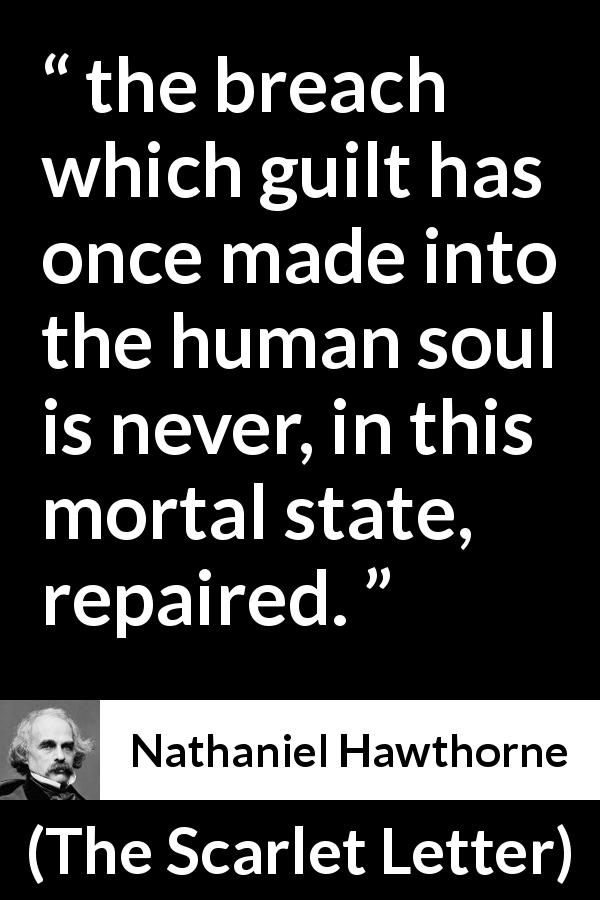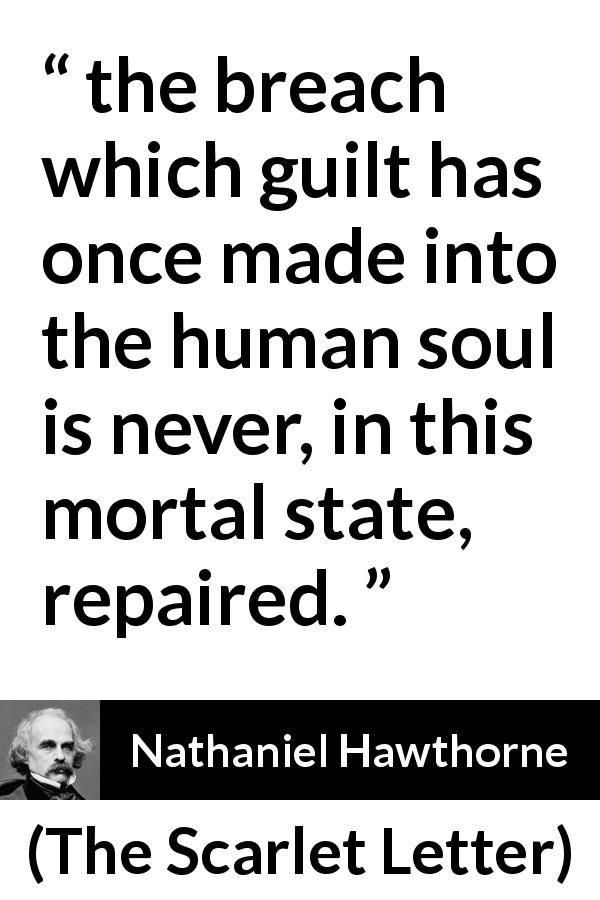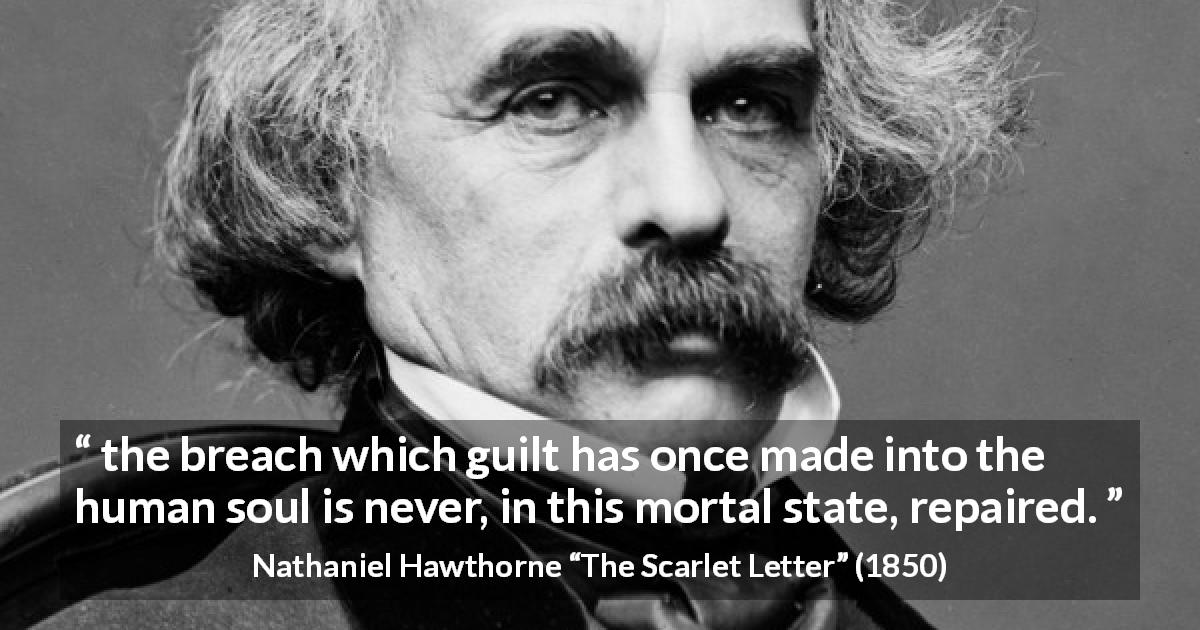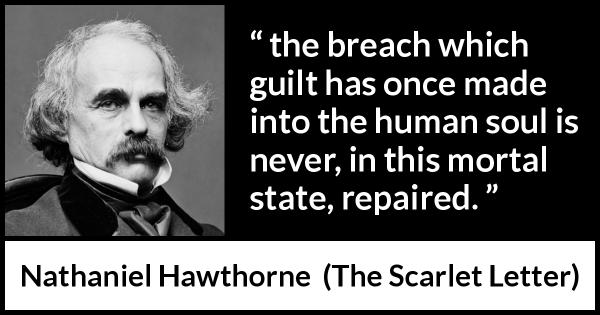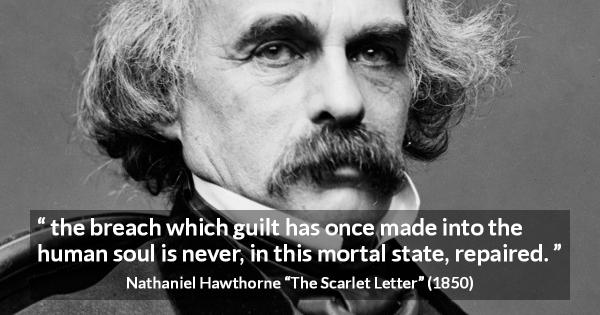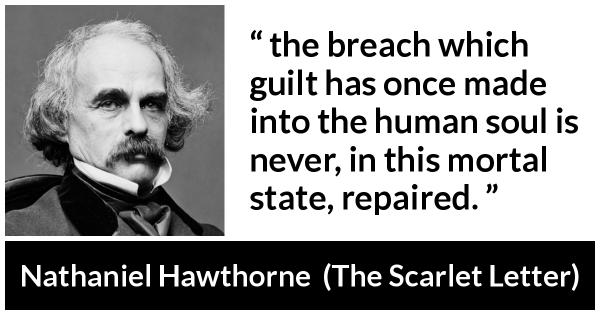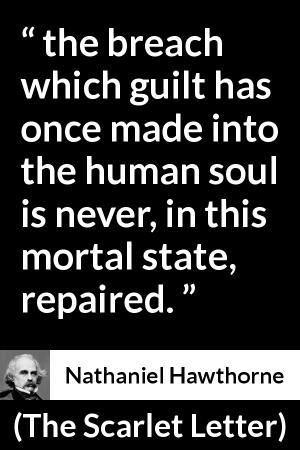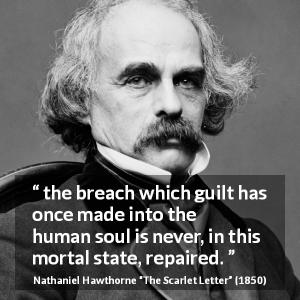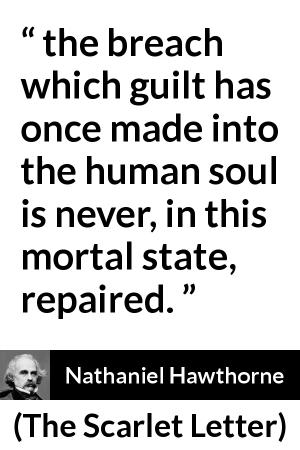“ the breach which guilt has once made into the human soul is never, in this mortal state, repaired. ”
Nathaniel Hawthorne, The Scarlet Letter (1850). copy citation
| Author | Nathaniel Hawthorne |
|---|---|
| Source | The Scarlet Letter |
| Topic | guilt resilience |
| Date | 1850 |
| Language | English |
| Reference | |
| Note | |
| Weblink | http://www.gutenberg.org/files/25344/25344-h/25344-h.htm |
Context
“None; unless it avail him somewhat, that he was broken down by long and exquisite suffering; that his mind was darkened and confused by the very[247] remorse which harrowed it; that, between fleeing as an avowed criminal, and remaining as a hypocrite, conscience might find it hard to strike the balance; that it was human to avoid the peril of death and infamy, and the inscrutable machinations of an enemy; that, finally, to this poor pilgrim, on his dreary and desert path, faint, sick, miserable, there appeared a glimpse of human affection and sympathy, a new life, and a true one, in exchange for the heavy doom which he was now expiating. And be the stern and sad truth spoken, that the breach which guilt has once made into the human soul is never, in this mortal state, repaired. It may be watched and guarded; so that the enemy shall not force his way again into the citadel, and might even, in his subsequent assaults, select some other avenue, in preference to that where he had formerly succeeded.”
source
